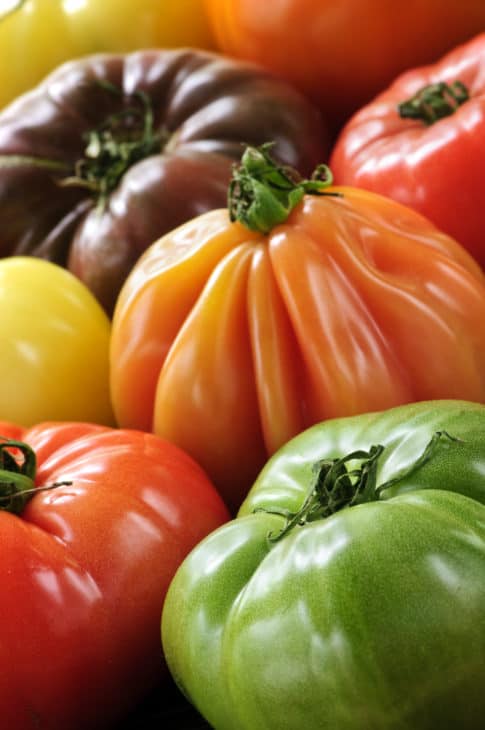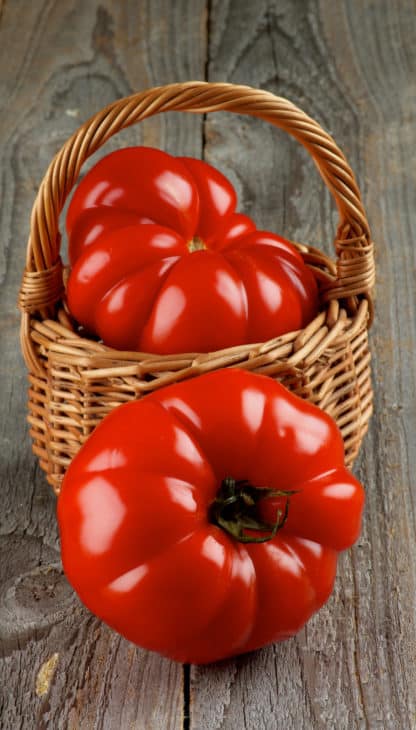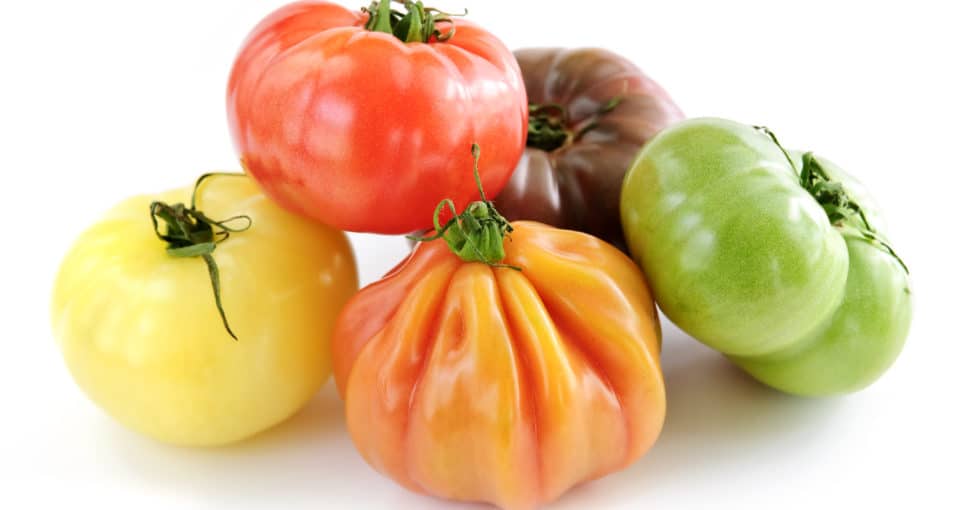Heirloom plants are unmodified plants that you can generally buy from your local nursery or garden shop. These plants are growing in popularity as they seem to be better than other plants. But what are the pros and cons of Heirloom plants that you should know?
Heirloom plants have a few pros and cons, including that Heirloom plants taste better, and they tend to be more nutritious, and they ripen in batches, but they also grow less produce, and they are more sensitive to pests, diseases, and the environment, to only name a few.
The 5 Pros Of Heirloom Plants
Heirloom plants seem to be growing in popularity as more and more home gardeners are buying and growing these more organic plants. But what are the benefits of Heirloom plants that make them so popular? Let’s find out!
1. Heirloom Plants Have Better Taste When Eaten
Most gardeners that grow Heirloom plants find that these plants have a better and fresher taste than Hybrid or genetically modified plants. This is because a large number of Hybrid and genetically modified plants are made to sacrifice taste for good looks.
This is because people are more likely to buy produce that looks big and juicy, even though they produce fails in the flavor department. Hybrid and genetically modified plants are mainly used for commercial growing and shipping, so they have been modified to best suit these conditions without taking flavor into account.
In contrast, Heirloom plants are mainly used in home gardens where ship-ability is not a concern, so the flavor is more important and prominent in these plants.

2. Heirloom Plants Are Open-Pollinated
Heirloom plants are open-pollinated plants, which brings great benefits for the gardener. Open-pollinated plants mean that the seeds from the produce can be saved season after season and the plants that grow from these seeds are true to the parent plant.
With other plant types, like Hybrids or genetically modified plants, only about two plants from every ten seeds planted will be true to the parent plant. This means that with Heirloom plants, if the parent plant grew good quality and delicious produce, the plants grown from their seeds are more likely to produce the same great produce.
3. Heirloom Plants Tend To Be More Nutritious
Heirloom plants are not only superior to Hybrid and genetically modified plants in taste, but they tend to be more nutritious too. Hybrids and genetically modified plants are used commercially as they tend to have a higher yield than Heirloom plants.
However, due to the plants’ modifications to emphasize yield and ship-ability, they now lack nutrition. If you grow Heirloom plants in your garden, you are more likely to grow nutritious and delicious food that will nourish your body the way it’s supposed to.
4. Heirloom Plants Tend To Ripen In Batches
Heirloom plants will grow their produce slower; all the produce they grow will not ripen at once, which can be a challenge for the home gardener to manage.
When you grow your own produce at home, you don’t want or need all of it to ripen simultaneously, as this could lead to half of the produce expiring before you can use it. This is where Heirloom plants shine, as their produce generally ripens in batches, making it easier for you to consume all the produce without waste.
5. You Can Save Your Own Heirloom Seeds
When growing Heirloom plants, you can save your own Heirloom seeds after every harvest. This means that you won’t need to spend more money next planting season to buy new seeds to grow in your garden.
You can harvest all your Heirloom seeds and then decide which ones grew better in your garden and easily plant those in the next season again. This saves you some money and means you will always have a good supply of your own seeds to ensure your garden stays full.
The 5 Cons Of Heirloom Plants
Even though Heirloom plants are growing in popularity and have some great advantages, these plants and seeds also have some disadvantages that you should be aware of before you decide to grow them. Let’s go through these in detail.
1. Heirloom Plants Grow Less Produce
Heirloom plants will grow less produce as they are not modified to produce the highest yield possible. This can mean that your plant will grow about half of the produce that you expect if you have grown Hybrid or genetically modified plants that have produced.
The produce that these plants grow will also be less pleasing or perfect in appearance as they are more organic, so they will have bumps, scratches, and cracks on them.

2. Heirloom Plants Require More Space
Heirloom plants tend to be bigger and require more space than Hybrid or genetically modified plants, as Hybrid and genetically modified plants are bred to be more compact.
However, Heirloom plants will grow wild, with some requiring strong trellises to help support their growth and some good pruning to ensure they don’t grow too big to manage. So, if you have a small space in your garden to grow plants, the Heirloom plants can easily take over and damage other plants.
3. Heirloom Plants Are More Sensitive To Disease And Environments
Unfortunately, Heirloom plants are more sensitive to pest infestations, diseases, and environmental conditions than Hybrid and genetically modified plants. This is because Hybrid and genetically modified plants are bred to be resistant to common pests and plant disease and are drought tolerant.
Heirloom plants are more susceptible to viral, fungal, and bacterial infections and other challenges like underwatering, which can easily damage the plant’s health or even kill the Heirloom plant.
4. Heirloom Plants Are Unpredictable
Heirloom plants are also unpredictable; this refers to the fact that the plant may produce an extremely high yield one year, only to produce a very small harvest the next. These plants also tend to be slow-growing and slow to produce, affecting gardeners who only have a short growing period. This unpredictability does put some gardeners off of growing Heirloom plants.
5. Heirloom Plant Seeds Can Be More Expensive
Heirloom seeds and plants tend to be more expensive than Hybrid or genetically modified plants and seeds as they are seen as more organic, and you can save your own seeds from them, meaning you will not need to buy another plant or seed pack.
These factors increase the price of the Heirloom plants and seeds as you will not need to buy them again, but it can be a relatively expensive once-off payment.



